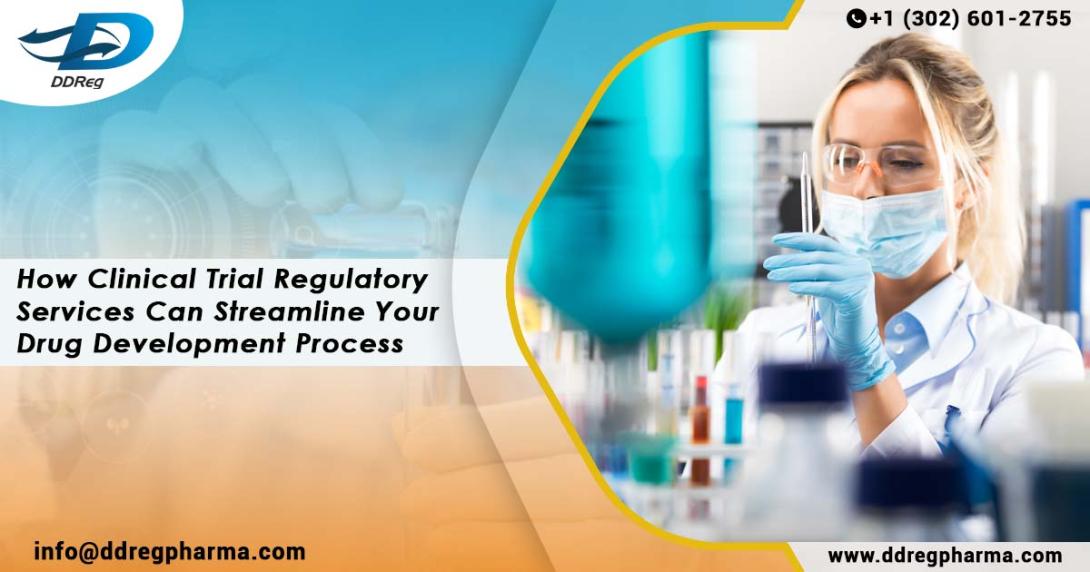
In today’s fast-paced pharmaceutical landscape, drug development is more complex than ever. Regulatory requirements vary across regions, and the path from preclinical research to market approval is filled with intricate procedures. Without the right expertise, these challenges can result in significant delays, wasted resources, and costly mistakes. This is where clinical trial regulatory services become essential, offering a streamlined, compliant, and efficient approach to drug development.
In this blog post, we'll explore how clinical trial regulatory services can simplify the process, improve outcomes, and help you navigate through the regulatory maze smoothly.
1. Navigating Global Regulatory Frameworks with Ease
Every country or region has its own set of regulatory guidelines, from the FDA in the U.S. to the EMA in Europe and the MHRA in the UK. Compliance with these regulations is critical to avoid delays or rejections. Regulatory services providers are experts in:
- Understanding local regulations in different regions
- Compiling documentation that meets specific regulatory expectations
- Coordinating submissions across multiple regulatory bodies
With their expertise, your Regulatory drug development services remain aligned with global standards, increasing the likelihood of faster approvals and fewer regulatory obstacles.
2. Accelerating Approval Timelines
Time is of the essence in drug development, especially in competitive therapeutic areas. Regulatory services help you avoid bottlenecks by ensuring that every aspect of your trial – from protocol submission to final approval – runs smoothly. Some key services include:
- Regulatory strategy development to align with approval goals
- Pre-IND or Scientific Advice meetings to clarify requirements early on
- Fast-tracking clinical trial applications (CTA) with optimal submissions
By anticipating issues and resolving them proactively, regulatory affairs services can shave off months from your development timeline, helping you bring life-saving products to market faster.
3. Ensuring Compliance at Every Stage of Development
Non-compliance at any stage of the clinical trial can lead to penalties, rejections, or the need for expensive rework. Regulatory experts ensure that your development process follows the latest standards, including Good Clinical Practices (GCP), Good Manufacturing Practices (GMP), and pharmacovigilance requirements.
- Audit preparation and inspection readiness to meet regulatory expectations
- Trial protocol review and monitoring for adherence to guidelines
- Safety reporting compliance throughout the trial lifecycle
With compliance embedded into every phase, you minimize risks and increase trust with regulators and stakeholders.
4. Optimizing Documentation and Submission Processes
The amount of documentation required for regulatory submissions is staggering. Regulatory services teams manage this burden efficiently by:
- Preparing Investigational New Drug (IND) and Clinical Trial Applications (CTAs)
- Compiling Investigator Brochures, Informed Consent Forms, and safety reports
- Managing electronic submissions using systems such as eCTD (Electronic Common Technical Document)
By ensuring complete, accurate, and timely documentation, these services reduce the chances of regulatory rejection or follow-up requests, keeping your development on track.
5. Reducing Costs Through Strategic Planning
A well-planned regulatory strategy can save significant costs in the long run. Regulatory services providers help you identify the shortest and most efficient paths to approval while avoiding unnecessary trials or redundant steps. Through:
- Strategic trial design consultations to align with regulatory expectations
- Adaptive trial planning to manage changes during the trial
- Risk assessments to foresee and address potential obstacles
This approach ensures that resources are allocated efficiently, reducing delays and keeping your budget under control.
6. Facilitating Seamless Communication with Regulatory Bodies
Clear, consistent communication with regulatory agencies is essential to a smooth approval process. Regulatory service providers act as a bridge between your team and these agencies, managing:
- Meeting requests and communications with regulators (e.g., pre-IND or end-of-phase meetings)
- Addressing questions and concerns raised by authorities
- Handling follow-up requests to expedite approvals
With their support, you can build strong relationships with regulators and respond quickly to feedback, avoiding misunderstandings or delays.
7. Boosting Confidence Among Investors and Stakeholders
Regulatory success is often a key factor in securing funding and gaining stakeholder confidence. Investors need to know that your product development plan is solid and compliant with global regulations. Working with clinical trial regulatory experts demonstrates your commitment to regulatory excellence and risk management, which can help attract funding and support for your project.
Conclusion: Unlock the Full Potential of Your Drug Development Process
Navigating the regulatory landscape is one of the biggest challenges in drug development, but with the right clinical trial regulatory services, it doesn’t have to be. From optimizing timelines and ensuring compliance to managing documentation and communication, these services are essential for keeping your project on track and maximizing its chances of success.
